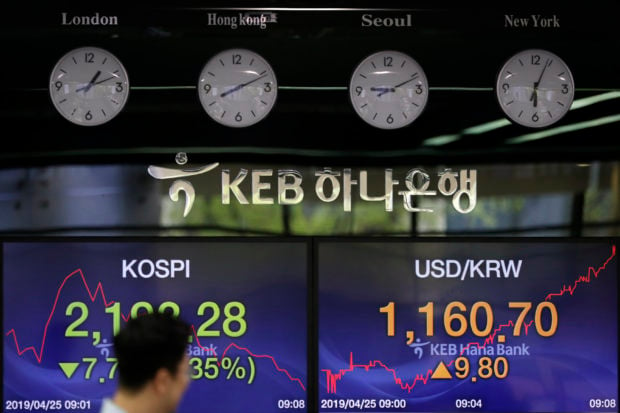Emerging Asian stocks rose on Wednesday, while the Malaysian ringgit and South Korean won led
modest gains in the region’s currencies, reflecting continued investor confidence in U.S. rate cut prospects next year despite pushback from some policymakers.
Shares in Seoul rose about 1.6 percent, notching their fifth consecutive session of gains. Equities in Bangkok
and Manila advanced 0.6 percent and 0.4 percent, respectively.
In currency markets, Malaysia’s ringgit rose 0.6 percent and hit its highest level in over two weeks. South Korea’s won
also added 0.6 percent, snapping a three-day losing streak.
“There are higher inflows in the Asian assets and the rally is explained by the ongoing risk-on sentiment as Fed pivot bets are still on and unfettered,” Vishnu Varathan of Mizuho Bank said.
READ: Fed’s Barkin: Central bank ‘nicely positioned’ amid inflation retreat
Emerging assets gained ground as investors continued to bet on rate cuts next year after Federal Reserve Chair Jerome
Powell’s unexpected dovish stance last week, defying some recent pushback from other Fed officials.
Markets are on the lookout for the U.S core personal consumption expenditure (PCE) index data due on Friday, which
will set expectations for Fed monetary stance next year.
Varathan added that potential risks to market confidence include surging oil prices because of an escalation in the
Middle Eastern conflict.
“The maritime disruptions in the Red Sea after militant attacks and the war in Gaza could push up freight and oil
prices, taking some froth off (the market rally) at some point.”
The surge in oil prices due to the supply disruption poses a fresh risk to inflation and fiscal health of net importing
countries like Thailand and India.
READ: Oil climbs nearly 1% on drop in Russia exports, Red Sea jitters
Thailand’s baht was last down 0.4 percent, while the Philippine peso and the Taiwanese dollar added
0.3 percent and 0.2 percent, respectively.
Indonesia’s rupiah was largely unchanged while stocks rose 0.6 percent.
Bank Indonesia is set to hold its policy meeting on Thursday, with markets expecting the central bank to
keep rates on hold.
READ: China keeps lending benchmark rates unchanged, as expected
Meanwhile, in China, the central bank kept its benchmark lending rates unchanged at the monthly fixing on Wednesday, in-line with market expectations, amid worries of deflation and slower economic growth.
The Chinese yuan edged 0.2 percent lower. Shares in Shanghai also lost about 0.4 percent.

















